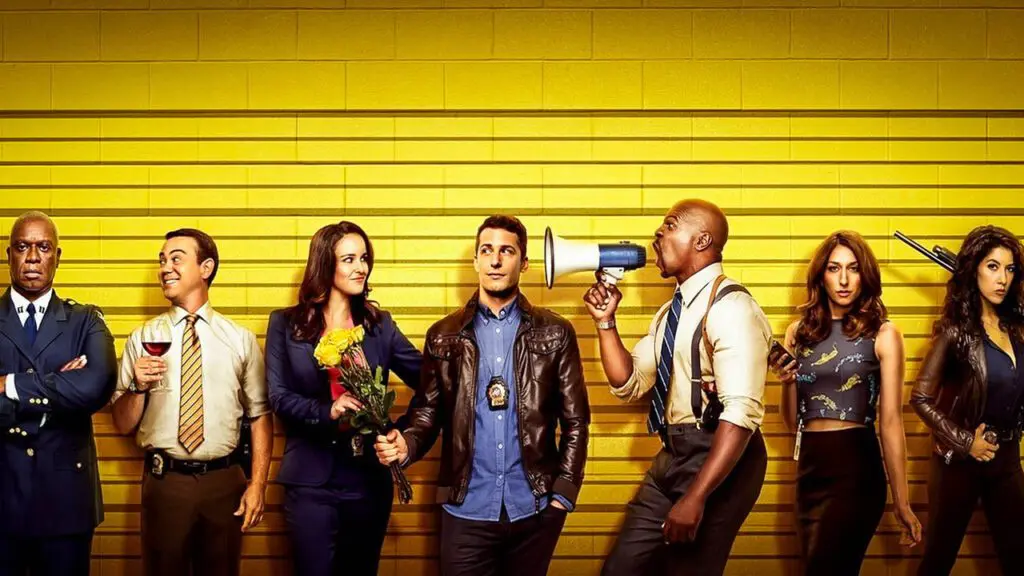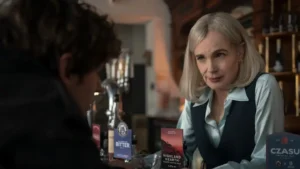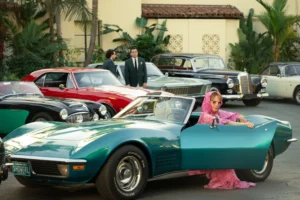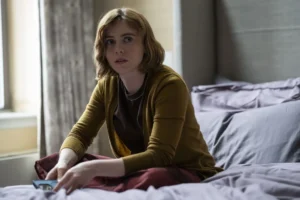Summary
“The Good Ones” pulls off a delicate balancing act in tackling important issues while still being funny.
This recap of Brooklyn Nine-Nine season 8, episode 1, “The Good Ones”, contains spoilers.
You can’t make a cop show these days. Not a traditional one, anyway. You can try, but the audience just isn’t there in the same way. Brooklyn Nine-Nine is many things, but first and foremost, it’s a cop show. It’s about cops doing cop things, and while none of the storylines, at least to my knowledge, have featured any of the 99th Precinct gunning down, say, an unarmed Black man, that doesn’t necessarily mean it could exist without the police procedurals and thrillers that have made cops synonymous with “good guys” over the years, all while real-world law enforcement has challenged that idea at every opportunity.
“The Good Ones”, the eighth season premiere of Brooklyn Nine-Nine after an extended hiatus meant to allow the show time and space to reinvent itself in this new climate, is one of the more impressive in the show’s history when it comes to balancing tones, ideas, characters, and general sentiments. It’s half of a usual episode and half of a performatively woke one of the kind that this very show has historically mocked rather well. It somehow manages to be topical and ridiculous; on-trend and off-kilter. It deserves more credit than it’ll get, since the fact it’s explicitly stating that the police force is corrupt and self-serving and dangerous won’t win it any new fans in certain quarters.
Brooklyn Nine-Nine season 8, episode 1 recap
Andy Samberg’s Jake Peralta is a character who has always been fascinated with the ideal of the cop, especially the detective; he sees himself as the lead character in a TV show not because he knows he is one, but because he’s fascinated with what being a detective means. Detectives are cool. They catch bad guys. He’s exactly the kind of guy who’d espouse the titular idea of “The Good Ones”, the belief that presumably every cop holds about themselves. Systemic injustices are always written off as the actions of a few bad apples, but as the old refrain goes, if you knew one Skittle was poisonous, would you grab a handful from the bag? That’s the dilemma that the disenfranchised face when dialing 911; they could get someone who earnestly wants to help them, or they could get someone who’ll kneel on their necks for eight minutes and forty-six seconds until they’re dead.
Jake is also a narcissist, which I suppose comes with the territory, so he takes the fact that Rosa has quit the force in order to do more good as a private investigator as a personal slight. He still naively believes that he is one of the good ones, as is the rest of the Nine-Nine, and so, when she takes on a case of a woman who has been racially profiled and assaulted by members of Jake’s old department, he’s eager to help her to prove his point. He’s friendly with the precinct’s captain, and he’s sure she’ll help. In helping, he’s sure he’ll prove to Rosa what a great cop and friend he is.
Naturally, she’s no help at all and only becomes less helpful as Rosa and Jake investigate the patrolmen’s union and run afoul of John C. McGinley as a perfectly-cast Billy Joel-loving momma’s-boy who sees reverse racism as worse than “classic” racism and basically stands in open opposition to the very idea of more egalitarian policing. He’s funny, but also faintly terrifying as a reminder of how many people in positions of power are just like him, despite him playing what is clearly an outlandish caricature. This arc isn’t easy for Jake or Rosa to navigate, in terms of getting to the truth, doing something meaningful with it, and repairing their own fractured relationship. There isn’t a neat and tidy resolution, either. The two aren’t able to get any real justice for Rosa’s client, and Jake has to learn the hard way that even those he considers to be “The Good Ones” most likely aren’t.
Boyle’s subplot is funnier, but not played as straight. All the same, though, there’s an element of real truth to it, emphasized mostly through an underappreciated Terry Crews getting increasingly sick of him but trying not to hurt his feelings. Boyle, see, has taken the problem of race relations in law enforcement particularly personally, and has decided that the best way of remedying the problem is to listen to a podcast called Two Wrongs Make A White and try to relate to Terry culturally by getting his hair lined up at the same barbers and paying him reparations. It’s not a new idea – over compensatory white guilt is actually pretty old hat at this point – but the Brooklyn Nine-Nine writers’ room is obviously up to the challenge of making this tired arc not just funny but also cutting, in its way.
But the biggest surprise of “The Good Ones” is Captain Holt, who almost moved me to tears out of nowhere. His subplot involves Amy, who has recently returned from maternity leave, fretting that he suddenly considers her a “stranger” because he made uncharacteristic small talk with her in the break room. Devastated, she attempts to work through their relationship problems with a sex book that Terry borrowed from Scully – there’s a funny recurring bit in which Terry bursts into the room to correct anyone who suggests the book was his – but it doesn’t seem to make much difference. Eventually, Holt confesses that the reason he was making small talk is that he has separated from Kevin and that the last year has been tough, “to be a Black man. And a police captain. And a human.” As he says that last bit his voice breaks slightly, and I swear I saw a little tear in his eye, lending a painful authenticity to his words. To see that from a character whose complete lack of emotion is integral to why he’s funny threw me for a bit of a loop. If anyone thinks that Brooklyn Nine-Nine is the worst place to tackle these kinds of important societal issues, I’d point them to this scene as a counterargument. It might be the best place of all.




